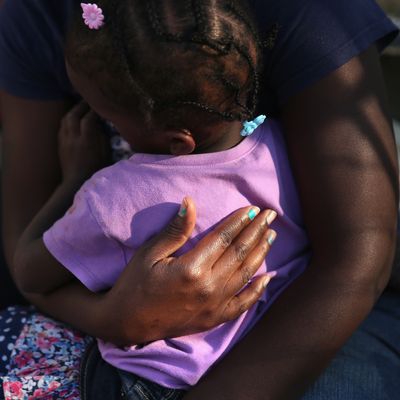
Time has a way of moving more slowly under the Trump administration, but it wasn’t that long ago that Ben Carson called poverty “a state of mind.” In an interview with NPR this morning, the Housing secretary softened that statement, kind of. Here’s a snippet from that interview, with comments from reporter Pam Fessler:
BEN CARSON: It is a factor. A part of poverty can be the state of mind - poor in spirit.
FESSLER: And he says it’s that mindset or spirit that can hold people back, especially if they think there’s no way out of poverty.
CARSON: One of the things that I think government can do very well is to help create the right kinds of mindset, the frame of mind by providing ladders of opportunity.
The emphasis on “mind-set” is still troubling. It’s so much more complicated than that, explains the neuroscientist Lisa Feldman Barrett in a blog post published on Sunday (so, before the NPR interview aired, but the message still applies). Barrett, as you know if you’ve listened to the most recent Invisibilia episodes, is the author of How Emotions Are Made, a popular science book that summarizes her theories on how the brain constructs emotion. In the latter half of the book, and in the new post on her site, she argues that growing up poor “molds the brain,” something my colleague Eric Levitz also noted at Daily Intelligencer when Carson first made his remarks. But Barrett’s research takes that a step farther, by theorizing why this happens. She writes:
Consider a child who is born into poverty. She is less likely to receive proper nutrition during her early years of brain development — circumstances that will harm the development of a region called the prefrontal cortex (PFC). A thinner PFC is linked to poorer performance in school, and less education, like not completing high school, which ultimately reinforces her poverty. In this cyclic manner, society’s stereotypes about poverty can become the physical reality of brain wiring, thereby making it seem as if the cause of poverty were simply genes all along.
Our experience of the world is shaped by our physical and social reality, and the relationship between the two is more cyclical than most people likely realize. “This vicious cycle is not some liberal bullshit,” she continues. “The neuroscience is crystal clear: brains wire themselves to their surroundings. A developing infant brain requires wiring instructions from the world around it. Without proper nourishment, both nutritional and social, that little brain will not develop to its fullest.”




